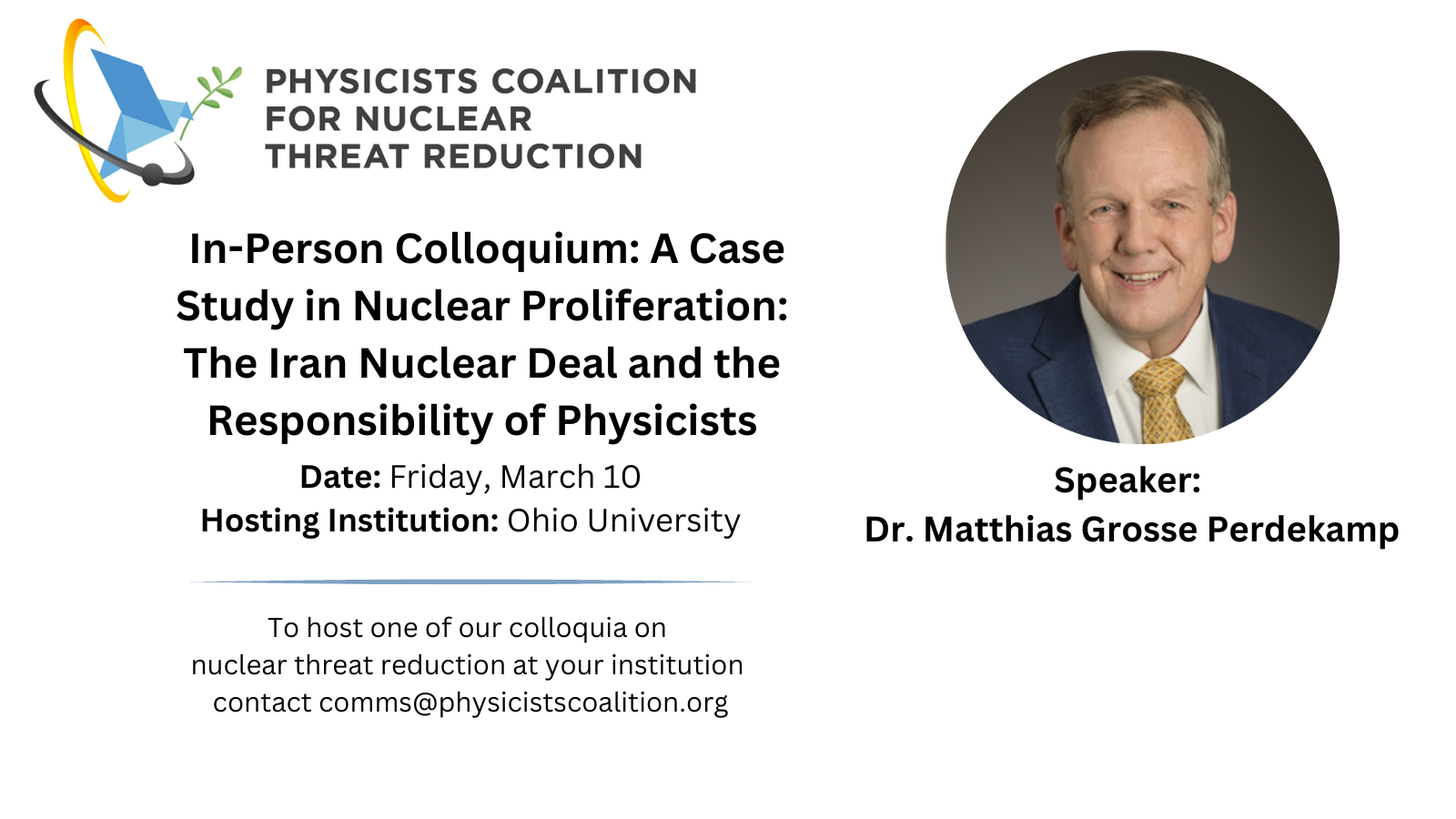
- This event has passed.
Ohio University – A Case Study in Nuclear Proliferation: The Iran Nuclear Deal and the Responsibility of Physicists
March 10, 2023

Colloquium Abstract
The first nuclear weapon was tested in Alamogordo, NM, in July 1945. In the following month, Hiroshima and Nagasaki were destroyed through the explosion of two nuclear warheads. These horrifying strikes directly led to the surrender of Japan almost 4 years after its attack on Pearl Harbor. An industrial scale effort with more than 130,000 employees produced the first nuclear fission weapons during World War II. With the United States and its allies facing totalitarian aggressors in the European and Pacific theaters, many elite scientists, engineers, and technicians supported the Manhattan Project through their scientific and technological innovations. 75 years later, despite enormous international efforts to create an effective system of nuclear arms control agreements that seek to limit nuclear weapons technology to the initial nuclear powers, knowledge and technology have further proliferated. Today nine countries possess nuclear weapons.
Alarmingly important arms control treaties have been challenged also by leading nuclear weapon states: The United States and Russia have ended the Intermediate Nuclear Force Treaty. Failure in the negotiations for an extension of the New START treaty was avoided only at the last moment. The United States has withdrawn from the JCPOA (the Iran Nuclear Deal). Both the United States and Russia have withdrawn from the Open Skies Arms Control Treaty.
The colloquium will review possible consequences of nuclear war and nuclear terrorism and explain the system of arms control treaties that have been put into place to contain this threat over the past 70 years. We will briefly review challenges different arms control agreements have been facing in the recent past. Some focus will be placed on the Iran Nuclear Deal, an agreement that aims to prevent the proliferation of nuclear weapons to Iran. We will discuss the recent history, including the US withdrawal in 2018 and current efforts to re-negotiate the agreement.
About the Speaker
Professor Matthias Grosse Perdekamp is a nuclear physicist at the University of Illinois. He serves as head of the Department of Physics and as director of the UIUC Program for Arms Control and Domestic and International Security, ACDIS. He explores the physics of nuclear forces and the structure of the fundamental building blocks of nuclear matter through accelerator-based experiments at European Laboratory for Nuclear and Particle Physics (CERN) in Geneva, Switzerland. His laboratory is developing advanced instrumentation for the detection of ionizing radiation. He teaches a longstanding course on Nuclear War and Arms Control as part of the ACDIS security certificate for undergraduate students at UIUC.
